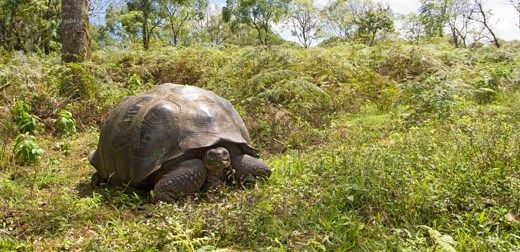Outstanding examples of Leeds research impact named

Dr Simon Goodman wins the inaugural Vice-Chancellor’s Impact Award for the Medicine and Biological Science Category - Biosecurity and sustainable tourism in the Galapagos Islands.
Dr Goodman has led research into the way that new diseases can enter the Islands. The research findings have helped persuade the Ecuadorian government to change laws protecting the Islands’ biodiversity. For example, all direct international flights to the Islands are now banned, and any domestic aircraft flying there must first be treated with insecticide. The research has also led to all tourist boats sailing between the Islands being fitted with “insect zappers” to help prevent insects accidentally spreading from one island to another.
The Galapagos Islands are of huge value to Ecuador’s tourism income and priceless as a past and future area of scientific study. These and other improvements in biosecurity mean that they are no longer on UNESCO’s ‘List of World Heritage Sites in Danger’.
The Impact Award prize money will enable the research team to study other threats to the Islands, and particularly those which could harm the rare Galapagos giant tortoises.
Dr Philip Waywell of Research and Innovation Services says: “The inaugural Vice-Chancellor's Impact Awards were a great success, with submissions received from all nine faculties. Entrants were able to demonstrate a broad range of cultural, economic and societal impacts that had arisen from research undertaken here at the University of Leeds. Beneficiaries of that research included members of the public, industrialists, cultural institutions and policy makers from across the world. The winning applicants were all commended for their sustained efforts in delivering high impact research over a number of years, often with multiple beneficiaries.”
Award winners will receive £2,500 each, to be used to help increase the impact of their research even further.




